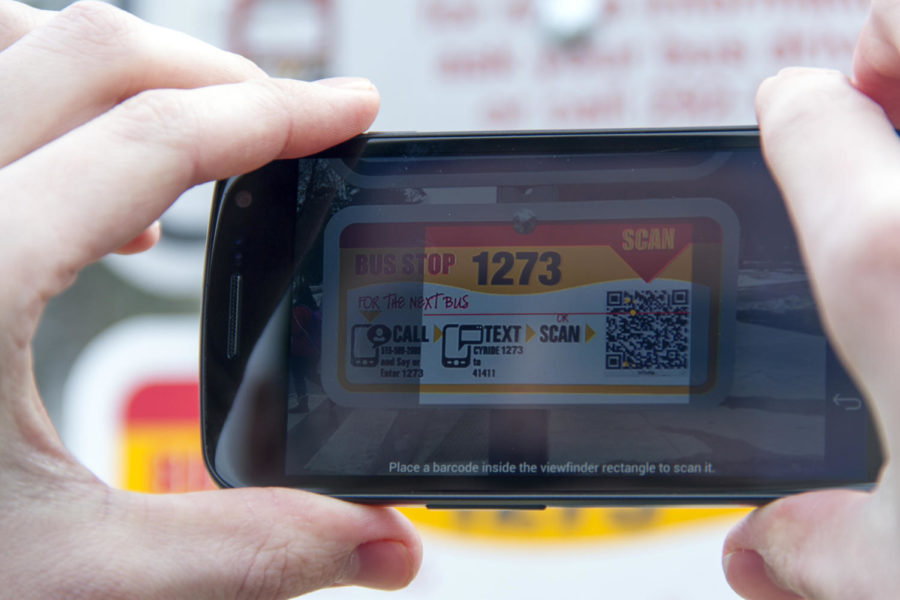CyRide goes high-tech with NextBus system
February 7, 2013
The days of guessing when the next CyRide bus will arrive are over; say hello to NextBus.
NextBus is a real-time arrival prediction system that CyRide introduced in Ames on Jan. 31.
According to a press release from CyRide, NextBus “enables riders to know the exact time the next several buses will arrive at their desired stop by utilizing a live feed via GPS satellites and intricate computer technology.”
NextBus can be accessed by scanning the QR code on the CyRide bus stop signs or by texting or calling the number posted on the signs. People can also view a live action map on CyRide’s website to see exactly where their bus is currently located.
“This system is more convenient and easier for our customers to use, and that is the main purpose of the project,” said Sheri Kyras, director of transit for CyRide.
The process of installing a bus tracking system began on Feb. 2, 2011, after the Government of the Student Body Senate approved a proposal supporting the funding of the NextBus system.
GSB funded Cyride $450,000 for the project. The $450,000 includes the initial cost of the system and three years of service.
The project was slowed down after CyRide was denied a request for a waiver of the city of Ames’ purchasing policies by the Ames City Council.
GSB President Jared Knight stated that other vendors in the bus tracking business complained to the city council that there should be a bidding process in place for this project.
CyRide, along with a GSB subcommittee, held interviews and demonstrations with bus tracking vendors. In the end, NextBus received the contract with CyRide in May 2012.
“NextBus was able to do it the cheapest and deliver the best product,” Knight said. “It had the best track record, best opportunities and was the all-around best product.”
Kyras pointed out that this type of system was one of the most requested items by students from feedback they had received in the past. Kyras also stated that the University of Iowa started a similar program about 18 months ago, and it has proven to be popular with students there.
Currently NextBus, which requires a cellular provider for the GPS system, runs on AT&T, but CyRide originally wanted the system to run on Verizon Wireless due to area coverage.
By using AT&T, CyRide only paid $80,000 per year for service compared to Verizon, which would cost $90,000 per year. Kyras said that CyRide will make a decision at the end of the semester whether or not to switch providers depending on whether or not there are issues with AT&T.
“I expect for the next month, we’ll hear about bugs with the system,” Knight said. “Once we get beyond that, this will be something students can use for the next 10 to 20 years.”
CyRide currently has close to 95 percent of its 450 bus stops so far equipped with signs for the NextBus system, but are still in need of signs for about 25 stops and have had to reorder 100 signs.







